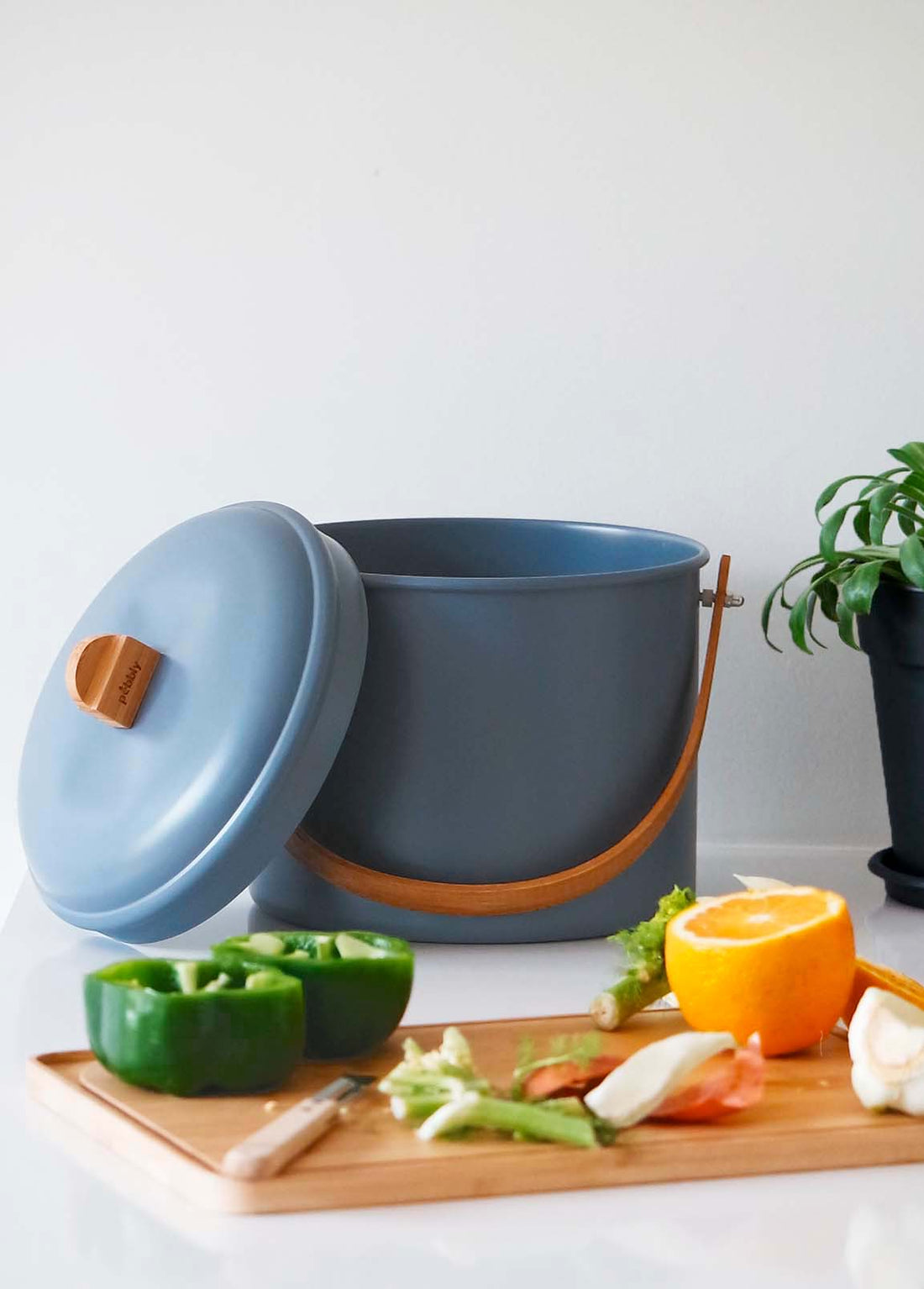
What is Composting & Why is it important
What is Composting?
Composting is an important part of nature’s life cycle. To put it simply, composting is the process of recycling organic matter. This includes food scraps, nail clippings, animal products, leaves, and more. These get decomposed by organisms, such as worms and other microorganisms, and turned into a fertilizer that can enrich soil and plants. Now that you know the basics, let’s break down each step of the process in more detail.
Through a balanced makeup of nitrogen, carbon, air, and water, these organic matters begin to decompose. This process attracts tiny microorganisms that live off the nutrient-rich material. All of those woody parsley stems and carrot nubs that don’t make it into your salad bowl are exactly what these tiny creatures love to feast on.

Related: Composting 101
During the composting process, your leftover organicscraps are discreetly consumed by all kinds of creatures, including worms,nematodes, and sowbugs. The leftover substance (meaning their waste material)becomes compost. The finished product is a dark and healthy gardenfertilizer that kind of resembles chocolate cake. The nutrient load of compostis so rich, in fact, that farmers often refer to it as “black gold.”
So Why is Composting Important?
Composting has countless benefits for the environment andis an easy way to fight food waste, right in your own kitchen. Did you knowabout a third of the food produced all around the world ends up in landfills?All this wasted food converts to methane, which is a greenhouse gas with aneven stronger effect than carbon dioxide. Composting is the simple solution youcan use to help eliminate food waste.
Composting is a completely natural biological process.It’s one of the many ways that our planet has evolved to dispose of waste andreuse it as a valuable resource, and it’s been done for centuries. Compostmaterial retains much higher amounts of water than regular soil, which meansyour lawn and garden require less water in order to flourish. Who wouldn’t wantan easy way to help conserve water? In addition to keeping plants morehydrated, this water retention prevents erosion by reducing runoff.
Repurposing your kitchen scraps to make compost alsosaves you money. Food and yard refuse make up a significant portion of whatgets tossed into the trash, and trash disposal costs money. Composting meansfewer byproducts get thrown away, and less in the bin means more in yourpocket. Each year the US spends billions of dollars on waste management. It’simportant that we each do our part in cutting back this waste by composting.Composting at home allows us to prevent some of that waste and turn it intosomething practical and beneficial for our yards. By adding just one extra stepinto your daily routine, you can do a lot of good for the planet!

But it doesn’t stop there. Other benefits of compostinginclude:
• Better soil health with higher nutrients
• A reduction in greenhouse gasemissions
• It’s an efficient way to recyclenutrients
• Improves crop yields
• Reduces the need for pesticides andfertilizers
• Water retention minimizes theimpact of drought
• Can rehabilitate contaminated soil
• Eliminates groundwatercontamination from landfills
And that’s just to name a few!

Related: How To Start Composting
By addingcomposting to your routine, you’re helping our planet play the long game.Composting is an easy way to aid the perseveration of the planet, but alsoleaves you with your own countless benefits. It’s a win-win, for you and theplanet! Sometimes all it takes is just one pebble to make a ripple, and justone ripple makes a wave. Check out our Composting Binnow, andstart making a difference today – it all begins with you!


